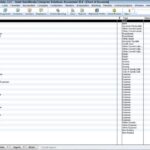What Is Afd? Alternative for Germany (AfD) is a prominent political party in Germany, and understanding its stance is crucial for grasping the country’s current political landscape. At WHAT.EDU.VN, we aim to provide clear, accessible information, making complex topics understandable for everyone and offering answers to your queries. Delve into the role of political parties, political landscape, and political opinions within Germany.
1. AfD: Exploring the Basics of Alternative for Germany
The Alternative for Germany (AfD) is a German political party founded in 2013. Initially, it focused primarily on opposition to the Eurozone’s economic policies during the European debt crisis. Over time, its platform shifted to include more right-wing and populist positions, particularly concerning immigration, national identity, and law and order. The AfD has gained significant attention and support, becoming a notable force in German politics.
1.1 Key Aspects of AfD
- Origins and Evolution: The AfD was established as a response to the Euro crisis, advocating for a more nationalistic economic policy.
- Political Stance: The party is generally considered right-wing populist, with strong stances on immigration and national sovereignty.
- Electoral Success: The AfD has achieved significant electoral success, gaining seats in the German Bundestag (federal parliament) and various state parliaments.
- Controversies: The party has faced controversies due to its rhetoric and association with extremist elements.
- Support Base: AfD’s support comes from various segments of the population, including those who feel left behind by mainstream politics.
1.2 Understanding the AfD’s Platform
The AfD’s platform encompasses a range of issues:
- Immigration: The party advocates for stricter immigration policies and border controls.
- Economy: They propose policies aimed at strengthening the German economy, often with a focus on national interests.
- National Identity: The AfD emphasizes German culture and identity, sometimes drawing criticism for nationalistic views.
- Law and Order: The party supports stricter law enforcement and measures to combat crime.
- European Union: The AfD is critical of the EU and its policies, advocating for a more limited role for the union.
2. Historical Context: The Rise of AfD in German Politics
To understand “What is AfD?”, it’s crucial to examine the historical context that led to its emergence and growth. The party’s rise is closely linked to significant shifts in German society and politics.
2.1 Key Factors Contributing to AfD’s Rise
- Euro Crisis: The European debt crisis and the handling of the Eurozone by the German government created dissatisfaction among some voters.
- Immigration Policies: The influx of refugees and immigrants, particularly in 2015, led to concerns and anxieties that the AfD capitalized on.
- Disillusionment with Mainstream Parties: Some voters felt that mainstream parties were not addressing their concerns, leading them to seek alternatives.
- East-West Divide: The AfD has found stronger support in eastern Germany, where economic and social disparities persist.
- Protest Vote: The AfD has also attracted voters who use their vote as a form of protest against the established political system.
2.2 Timeline of AfD’s Growth
- 2013: The AfD is founded, initially focusing on opposition to the Eurozone.
- 2014: The party gains seats in the European Parliament.
- 2015: The refugee crisis leads to a surge in support for the AfD.
- 2017: The AfD enters the German Bundestag, becoming the third-largest party.
- Recent Years: The party continues to be a significant force in German politics, despite controversies and internal divisions.
3. Analyzing AfD’s Supporters: Who Supports Alternative for Germany?
Understanding who supports the AfD is essential for a comprehensive answer to “What is AfD?”. The party’s support base is diverse and complex, encompassing different demographics and motivations.
3.1 Key Demographics of AfD Supporters
- Education Level: Voters with lower levels of education are more likely to support AfD. According to Pew Research Center, 22% of Germans with lower education levels view AfD favorably, compared to 12% with higher education levels.
- Gender: Men are more likely to support AfD than women. Pew Research Center data shows that 26% of men have a positive view of AfD, while only 11% of women do.
- Geographic Location: The AfD tends to have stronger support in eastern Germany due to historical and socio-economic factors.
- Age: Support for AfD varies across age groups, with some studies indicating higher support among middle-aged and older voters.
- Socio-Economic Status: Those feeling economically marginalized or left behind by globalization may turn to the AfD.
3.2 Motivations of AfD Supporters
- Economic Concerns: Some supporters are concerned about the economic impact of globalization and European integration.
- Immigration Concerns: Opposition to current immigration policies is a major motivation for many AfD voters.
- National Identity: A desire to preserve German culture and identity is another significant factor.
- Disillusionment with Mainstream Politics: Some voters feel that mainstream parties no longer represent their interests.
- Protest Voting: Voting for the AfD can be a way to express dissatisfaction with the political establishment.
4. Controversies and Criticisms Surrounding AfD
One can’t thoroughly address “What is AfD?” without acknowledging the controversies and criticisms the party has faced since its inception. These issues have significantly shaped its public image and political standing.
4.1 Key Controversies
- Extremist Rhetoric: The AfD has been criticized for using language and rhetoric that is considered xenophobic, racist, and Islamophobic.
- Links to Extremist Groups: There have been concerns about connections between AfD members and far-right extremist groups.
- Historical Revisionism: Some AfD members have been accused of downplaying or denying the atrocities of Nazi Germany.
- Anti-Immigrant Stance: The party’s strong anti-immigrant stance has drawn criticism from human rights organizations and political opponents.
- Internal Divisions: The AfD has experienced internal conflicts and power struggles, leading to splits and expulsions.
4.2 Criticisms from Various Groups
- Political Opponents: Mainstream political parties have strongly criticized the AfD for its policies and rhetoric.
- Media: The media has played a crucial role in scrutinizing the AfD and exposing its controversies.
- Civil Society Organizations: Human rights groups, anti-racism organizations, and other civil society organizations have been vocal in their criticism of the AfD.
- International Community: International observers have expressed concerns about the rise of right-wing populism in Germany, including the AfD.
5. AfD’s Impact on German Politics and Society
The emergence and growth of the AfD have had a profound impact on German politics and society. Understanding this impact is crucial to address the question, “What is AfD?”.
5.1 Key Impacts on German Politics
- Shift in Political Discourse: The AfD has shifted the political discourse in Germany, making topics like immigration and national identity more central.
- Polarization of Society: The party’s presence has contributed to increased polarization and division within German society.
- Challenge to Mainstream Parties: The AfD has challenged the dominance of mainstream parties, forcing them to adapt and respond to new political realities.
- Impact on Government Formation: The AfD’s presence in parliament has made government formation more complex and challenging.
- Influence on Policy: The party has influenced policy debates, particularly in areas such as immigration and security.
5.2 Social Impacts
- Increased Xenophobia and Racism: Critics argue that the AfD’s rhetoric has contributed to increased xenophobia and racism in Germany.
- Division within Communities: The party’s presence has created divisions within communities and families.
- Impact on Social Cohesion: The AfD’s policies and rhetoric have raised concerns about social cohesion and integration.
- Debate on National Identity: The party has sparked a debate about German national identity and what it means to be German.
6. AfD’s Views on International Relations
To fully understand “What is AfD?”, it’s important to analyze the party’s views on international relations, particularly its stance on key global issues and relationships.
6.1 Key International Relations Stances
- European Union (EU): The AfD is highly critical of the EU, advocating for a more limited role for the union and greater national sovereignty. According to Pew Research Center, only 30% of AfD supporters have a positive view of the EU, compared to 72% of non-supporters.
- NATO: The party has expressed skepticism about NATO and its role in European security. Pew Research Center data indicates that 39% of AfD supporters view NATO favorably, compared to 71% of non-supporters.
- Russia: The AfD has often taken a more conciliatory stance towards Russia, calling for an end to sanctions and advocating for closer ties. Pew Research Center shows that 45% of AfD supporters have confidence in Vladimir Putin, compared to only 10% of non-supporters.
- United States: AfD supporters tend to have more positive views of former U.S. President Donald Trump compared to non-supporters.
- Ukraine: The AfD has campaigned against weapon deliveries to Ukraine and called for an end to sanctions on Russia.
6.2 Implications of These Views
- EU Relations: The AfD’s Euroscepticism could lead to calls for Germany to reduce its involvement in the EU or even leave the union.
- Security Policy: The party’s stance on NATO could weaken Germany’s commitment to collective defense.
- Relations with Russia: Closer ties with Russia could strain Germany’s relationships with its Western allies.
- Foreign Policy: The AfD’s views could lead to a more nationalistic and isolationist foreign policy for Germany.
7. The Future of AfD: Potential Scenarios and Challenges
The question “What is AfD?” leads naturally to speculations about the party’s future. Several potential scenarios could play out in the coming years, each with its own set of challenges.
7.1 Potential Scenarios
- Continued Growth: The AfD could continue to grow in popularity, potentially becoming the dominant force on the right wing of German politics.
- Stagnation: The party’s support could stagnate, reaching a ceiling beyond which it cannot grow.
- Decline: Internal divisions, scandals, or policy failures could lead to a decline in the AfD’s support.
- Radicalization: The party could become more radicalized, alienating moderate supporters and attracting extremist elements.
- Integration: The AfD could moderate its positions and attempt to integrate into the mainstream political system.
7.2 Challenges Facing the AfD
- Internal Divisions: Overcoming internal conflicts and maintaining party unity is a major challenge.
- Public Image: Improving its public image and shedding its association with extremism is crucial for attracting broader support.
- Policy Coherence: Developing coherent and realistic policy proposals is necessary for gaining credibility.
- Competition: Facing competition from other parties on the right wing of German politics.
- External Pressure: Resisting pressure from the media, political opponents, and civil society organizations.
8. Comparing AfD to Other Right-Wing Parties in Europe
To better understand “What is AfD?”, it’s helpful to compare it to other right-wing parties in Europe. This comparison can highlight similarities and differences in their platforms, support bases, and impacts on their respective countries.
8.1 Similarities
- Populist Rhetoric: Many right-wing parties use populist rhetoric to appeal to voters who feel left behind by mainstream politics.
- Anti-Immigration Stance: Opposition to immigration is a common theme among these parties.
- Euroscepticism: Many right-wing parties are critical of the European Union and advocate for greater national sovereignty.
- Emphasis on National Identity: These parties often emphasize national culture and identity.
- Support from Disaffected Voters: They tend to draw support from voters who are disillusioned with mainstream politics.
8.2 Differences
- Historical Context: The historical context of each country shapes the specific issues and concerns that right-wing parties address.
- Policy Focus: Some parties focus more on economic issues, while others prioritize immigration or cultural identity.
- Extremism: The level of extremism varies among these parties, with some being more radical than others.
- Electoral Success: The level of electoral success varies widely, with some parties being dominant forces in their countries and others remaining marginal.
- Coalition Potential: Some parties are willing to form coalitions with mainstream parties, while others are politically isolated.
9. Case Studies: AfD in Different German States
The impact and influence of AfD can vary significantly across different German states. Examining these variations provides a nuanced understanding of “What is AfD?” and its regional dynamics.
9.1 Key Case Studies
- Saxony: The AfD has been particularly successful in Saxony, where it has often been the strongest party in state elections.
- Thuringia: The AfD in Thuringia is led by a controversial figure and has faced scrutiny for its extremist views.
- Brandenburg: The AfD has also gained significant support in Brandenburg, where it has focused on issues such as rural development and security.
- Bavaria: In Bavaria, the AfD faces competition from the Christian Social Union (CSU), a conservative party with a strong regional base.
- North Rhine-Westphalia: The AfD has had less success in North Rhine-Westphalia, Germany’s most populous state, where mainstream parties remain dominant.
9.2 Factors Contributing to Regional Variations
- Economic Conditions: Economic disparities between states can influence support for the AfD.
- Demographic Factors: The age, education level, and ethnic composition of the population can affect the party’s appeal.
- Political Culture: The political culture and traditions of each state can shape the way the AfD is perceived.
- Local Leadership: The quality and appeal of local AfD leaders can influence the party’s success.
- Competition from Other Parties: The presence of strong regional parties can limit the AfD’s growth.
10. Expert Opinions: What Experts Say About AfD
To gain a comprehensive understanding of “What is AfD?”, it’s essential to consider the opinions of experts from various fields, including political science, sociology, and history.
10.1 Key Expert Perspectives
- Political Scientists: Political scientists analyze the AfD’s ideology, electoral performance, and impact on the German political system.
- Sociologists: Sociologists study the social roots of AfD support and the party’s role in shaping social attitudes.
- Historians: Historians provide historical context and analyze the AfD in relation to past right-wing movements in Germany.
- Economists: Economists examine the AfD’s economic policies and their potential impact on the German economy.
- Legal Scholars: Legal scholars analyze the AfD’s policies in relation to constitutional principles and human rights.
10.2 Common Themes in Expert Analysis
- Right-Wing Populism: Experts generally agree that the AfD is a right-wing populist party.
- Anti-Immigration Sentiment: The AfD’s anti-immigration stance is a key factor in its appeal to voters.
- Disillusionment with Mainstream Politics: The party benefits from widespread disillusionment with mainstream politics.
- Impact on German Democracy: Experts are divided on the long-term impact of the AfD on German democracy.
- Challenges to Integration: Integrating the AfD into the mainstream political system poses significant challenges.
11. Resources for Further Research on AfD
If you’re seeking a deeper understanding of “What is AfD?”, numerous resources are available for further research.
11.1 Key Resources
- Academic Journals: Scholarly articles in political science, sociology, and history journals.
- Books: Comprehensive analyses of the AfD and its role in German politics.
- Research Institutions: Reports and studies from research institutions and think tanks.
- News Articles: Coverage of the AfD in reputable news outlets.
- Government Reports: Official reports and data from government agencies.
- Party Documents: The AfD’s official platform, statements, and publications.
11.2 Tips for Evaluating Sources
- Check the Author’s Credentials: Ensure that the author is an expert in the field.
- Assess the Source’s Bias: Be aware of potential biases and consider multiple perspectives.
- Look for Evidence: Evaluate the evidence and arguments presented in the source.
- Verify Information: Cross-reference information with other reputable sources.
- Consider the Publication Date: Ensure that the information is up-to-date and relevant.
12. Debunking Myths and Misconceptions About AfD
Misinformation and myths can distort the understanding of “What is AfD?”. It’s important to debunk common misconceptions and provide accurate information.
12.1 Common Myths and Misconceptions
- All AfD Supporters are Extremists: While some AfD supporters hold extremist views, the party’s support base is diverse.
- The AfD is a Nazi Party: While some AfD members have been accused of historical revisionism, the party is not a direct continuation of the Nazi Party.
- The AfD Only Appeals to Uneducated Voters: While voters with lower levels of education are more likely to support the AfD, the party also attracts support from other segments of the population.
- The AfD is a Unified and Coherent Party: The AfD has experienced internal divisions and conflicts, indicating a lack of unity and coherence.
- The AfD is a Passing Fad: The AfD has been a significant force in German politics for several years and is unlikely to disappear anytime soon.
12.2 Providing Accurate Information
- Present Evidence: Back up claims with evidence from reputable sources.
- Avoid Generalizations: Be specific and avoid making sweeping generalizations.
- Acknowledge Complexity: Recognize the complexity of the issue and avoid oversimplification.
- Consider Multiple Perspectives: Present different perspectives and avoid bias.
- Stay Up-to-Date: Keep abreast of the latest developments and research on the AfD.
13. FAQ: Common Questions About Alternative for Germany (AfD)
Here are some frequently asked questions about the Alternative for Germany (AfD) to further clarify “What is AfD?”:
13.1 Questions and Answers
| Question | Answer |
|---|---|
| What are the main policies of the AfD? | The AfD advocates for stricter immigration policies, a stronger focus on German national identity, and a more critical stance towards the European Union. |
| Who are the key leaders of the AfD? | Key leaders of the AfD have included figures such as Alice Weidel, Tino Chrupalla, and Björn Höcke, although leadership roles and influence can shift over time. |
| How has the AfD performed in recent elections? | The AfD has seen varied electoral results, with strong performances in some state elections, particularly in eastern Germany, and representation in the Bundestag. |
| What is the AfD’s stance on immigration? | The AfD is known for its strict anti-immigration policies, advocating for tighter border controls, deportation of illegal immigrants, and restrictions on asylum seekers. |
| How does the AfD view the European Union? | The AfD is highly critical of the EU, advocating for a more limited role for the union and greater national sovereignty for Germany. Some members have even suggested the possibility of Germany leaving the EU. |
| What are some controversies involving the AfD? | The AfD has faced numerous controversies, including accusations of xenophobia, racism, and historical revisionism. Some members have been linked to far-right extremist groups, and the party has been criticized for its rhetoric and policies on immigration and national identity. |
| How does the AfD compare to other right-wing parties? | The AfD shares similarities with other right-wing parties in Europe, such as populist rhetoric, anti-immigration stances, and Euroscepticism. However, the specific policies and level of extremism can vary. |
| What is the AfD’s impact on German society? | The AfD’s presence has contributed to increased polarization, shifted political discourse, and challenged mainstream parties. Critics argue that the AfD’s rhetoric has contributed to increased xenophobia and racism in Germany. |
| What are the main challenges facing the AfD? | The AfD faces challenges such as internal divisions, improving its public image, developing coherent policies, and competing with other parties. |
| Where can I find more information about the AfD? | You can find more information about the AfD from academic journals, books, research institutions, news articles, government reports, and the party’s official documents. Always evaluate sources critically and consider multiple perspectives. |
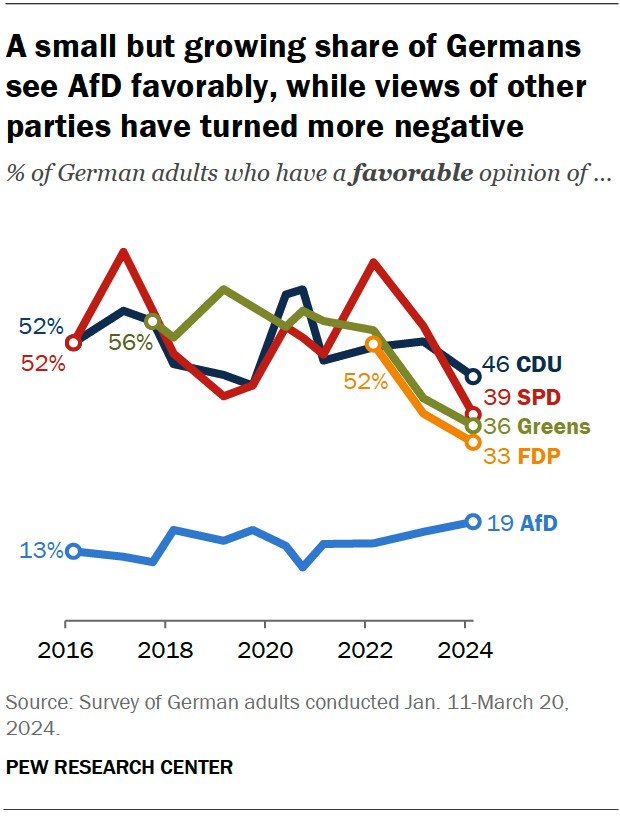
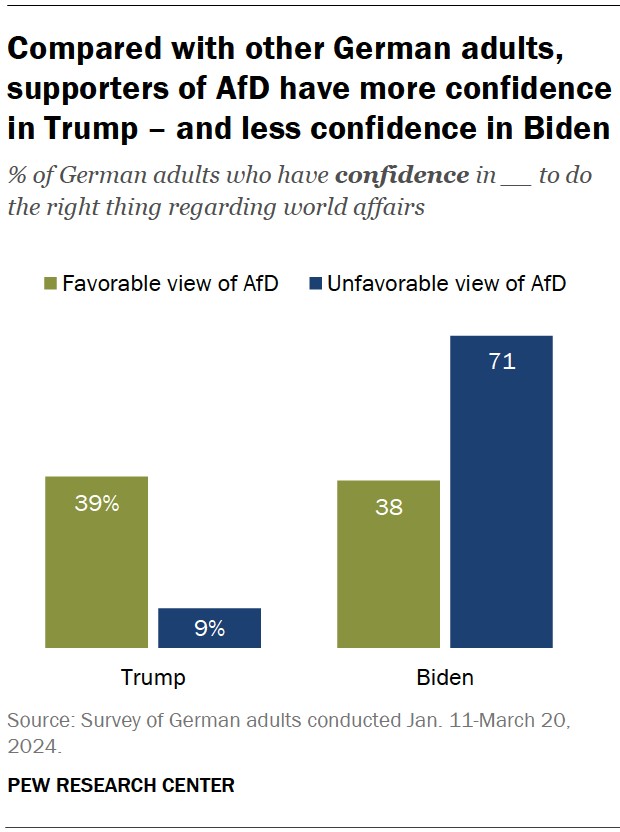
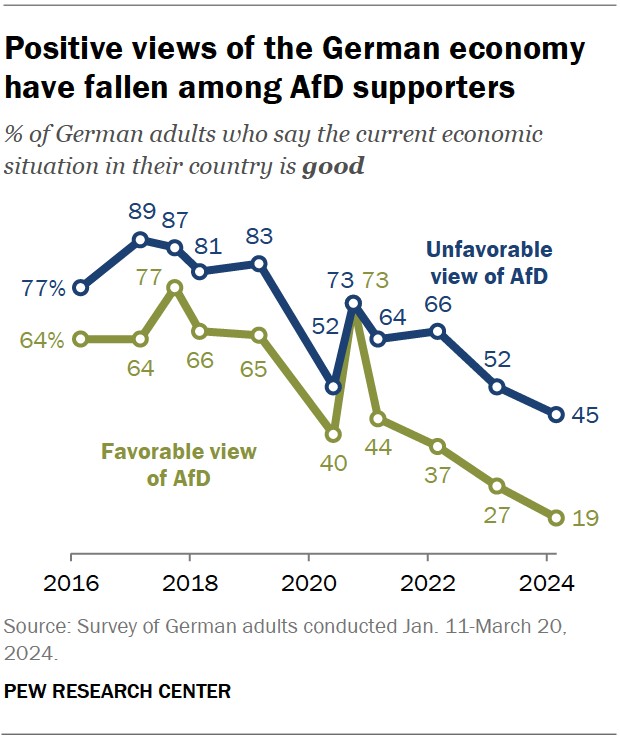
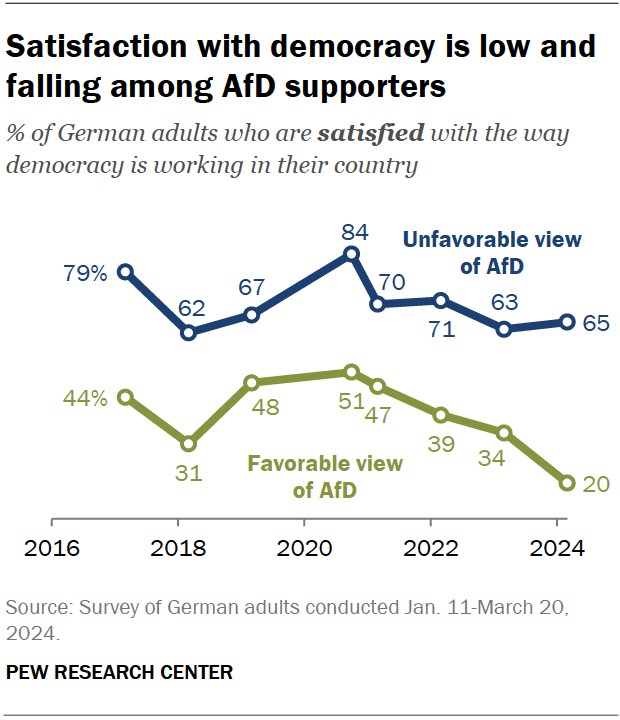
14. Conclusion: Understanding AfD in the Broader Context
In conclusion, understanding “What is AfD?” requires a comprehensive analysis of its origins, policies, support base, controversies, and impact on German politics and society.
14.1 Key Takeaways
- Right-Wing Populist Party: The AfD is a right-wing populist party that emerged in response to the Euro crisis and immigration policies.
- Controversial Policies: The party’s policies on immigration, national identity, and the EU have generated significant controversy.
- Diverse Support Base: The AfD’s support base is diverse, encompassing different demographics and motivations.
- Impact on German Politics: The party has had a profound impact on German politics, shifting the political discourse and challenging mainstream parties.
- Future Uncertain: The future of the AfD is uncertain, with several potential scenarios and challenges ahead.
14.2 Staying Informed
Staying informed about the AfD and its role in German politics is crucial for understanding the country’s current political landscape. Be sure to consult a variety of sources, evaluate information critically, and consider multiple perspectives.
Do you have more questions about AfD or any other topic? At WHAT.EDU.VN, we’re dedicated to providing you with free, reliable answers. Don’t hesitate to ask your questions and explore our platform for a wealth of information. Contact us at 888 Question City Plaza, Seattle, WA 98101, United States or via WhatsApp at +1 (206) 555-7890. Visit our website at what.edu.vn for more information.
